Living On A Houseboat: Is It Right For You?
Discover the pros and cons of this unique lifestyle on the water
 Written By Robert Van Rhijn
Written By Robert Van Rhijn Imagine waking up to the gentle rocking of your home, the sound of water lapping against the hull, and a view of Lake Ontario that’s straight out of a postcard. Living on a houseboat can sound like a dream. But is it the right dream for you?
Let’s dive into the pros and cons of this unique lifestyle to help you decide if life on the water is your perfect fit.
The Perks of Houseboat Living
1. Unbeatable Views
Depending on where you dock your boat, you could have stunning city skyline views or a front-row seat to nature’s finest. Like this houseboat that was recently listed for $1.2 million, featuring a gorgeous view of the Scarborough Bluffs.
So whether it’s a sunrise over the lake or a peaceful evening with the moon reflecting on the water, the scenery is constantly changing and always stunning.
2. Freedom and Flexibility
One of the biggest draws of living on a houseboat is the freedom to move. If you get tired of one location, you can simply motor on over to another. It’s like having a home and a vacation all rolled into one! Although, it is important to note that some houseboats are actually floating homes, so they don’t have a motor and can’t be easily moved.
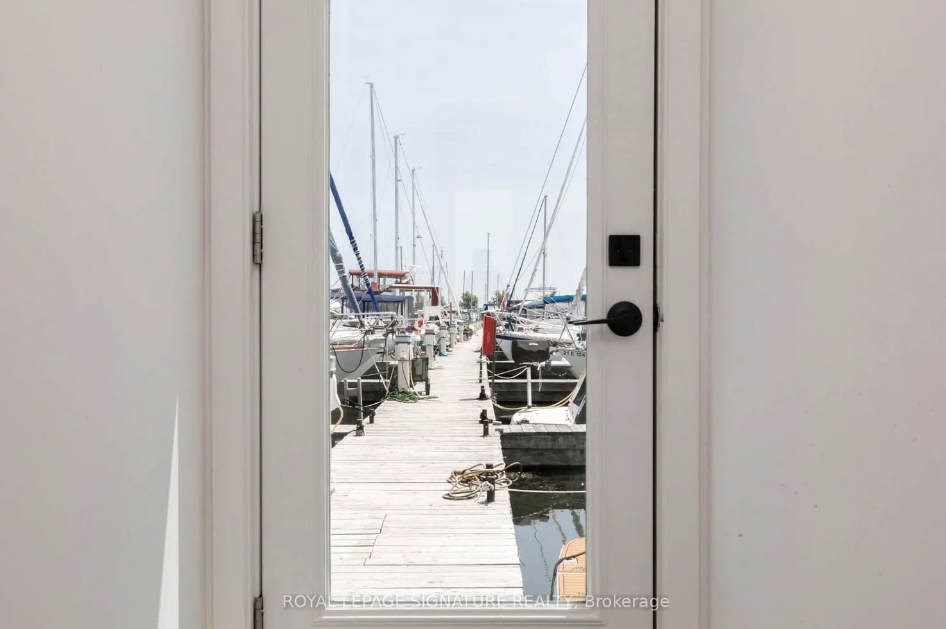
3. Community Vibes
Houseboat communities are known for being tight-knit and friendly. Your neighbours will be fellow adventurers and free spirits, ready to share a laugh or lend a hand.
“Even in the wintertime, everyone makes a point of getting together on the dock for drinks, and there are regular movie nights and writing circles. There are 52 households that live here full-time, with residents ages 30 to 75. It’s a really tight-knit group,” said houseboat owner Kate Fincham in a Toronto Life Article
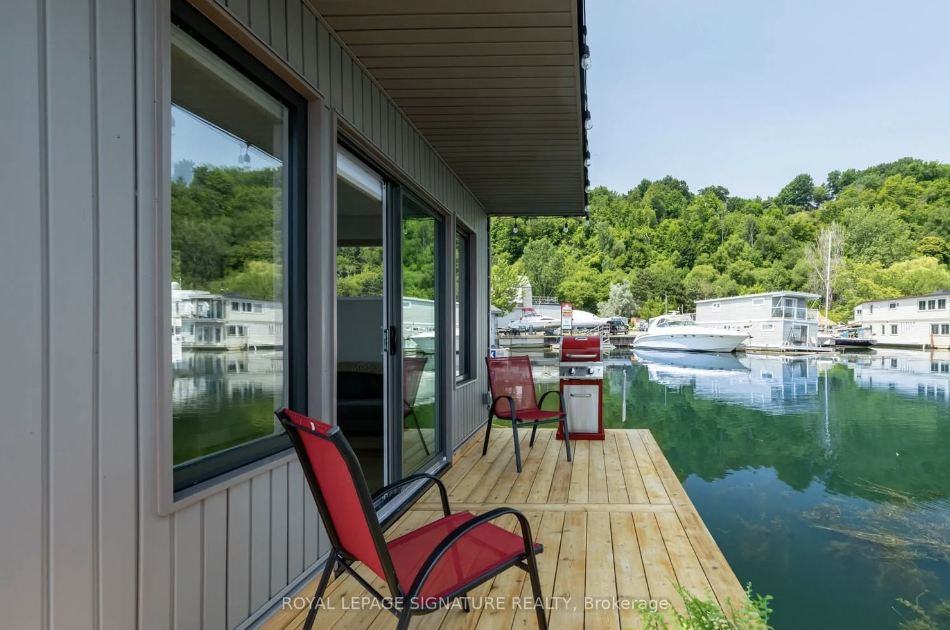
4. Closer to Nature
When you live in a concrete jungle like Toronto, it’s easy to forget that there’s grass, birds, trees and even a whole Great Lake out there.
But living on the water means you’re never far from a refreshing swim, a peaceful paddle, or a great fishing spot. It’s a fantastic way to stay active and connected to the natural world.
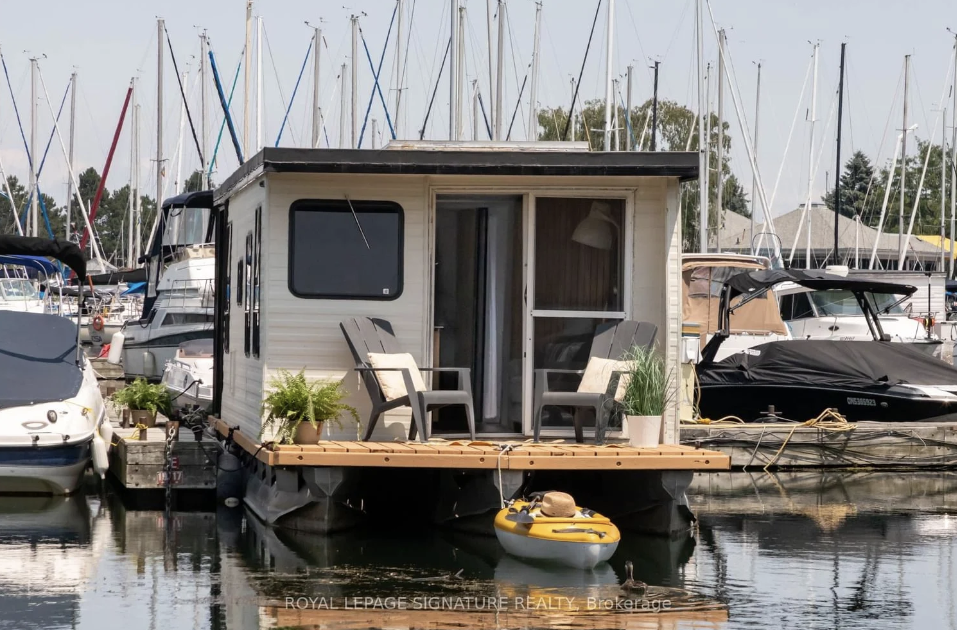
5. Price
One of the bigger selling points of houseboats or floating homes is they can be significantly cheaper than a traditional property.
This modern one-bed, two-bath floating home is listed for listed for $569,000. But we’ve seen houseboats listed as low as $149,000. There are still mooring fees to consider, although there’s no property tax (since there’s no land).
The Challenges to Consider
1. Space Constraints
Houseboats can be very cozy, to say the least. If you’re used to spacious living, downsizing can be a challenge. You’ll likely need to get creative with storage, and be prepared to live with less — like not having full-sized kitchen appliances or a bathtub.
That being said, if you want more space go with a float home. This one comes with multiple bedrooms, multiple bathrooms, two-storeys, and more than 1,400 square feet of living space. Float homes are pretty much like a regular home, just on water instead of land.
2. Maintenance and Repairs
Water can be tough on boats, and houseboats are no exception. Regular maintenance is a must, and repairs can be frequent. Also, depending on what needs fixing, repairs can be costly. That being said, traditional homes also require regular maintenance and repairs. But the stakes are a bit higher on a houseboat since it’s not just about keeping your home clean—it’s about keeping it afloat!
3. Weather Woes
Living on the water means being at the mercy of the elements. Storms can be especially daunting, and you’ll need to be prepared for rough weather. Plus in Canada, winter can pose its own set of challenges with freezing water and icy conditions. However, residents use “bubblers” to keep water flowing, so it doesn’t freeze and damage the pontoons.
4. Limited Utilities
Depending on your location, you may have limited access to utilities like electricity, water, and sewage systems. Some houseboaters rely on solar power, water tanks, and composting toilets. But if you’re docked in a marina like Scarborough’s Bluffer’s Park, this isn’t as big of an issue. You can hook up to the city’s running water, power grid and plumbing is connected to a septic tank. You do still need to empty that tank every six weeks though.
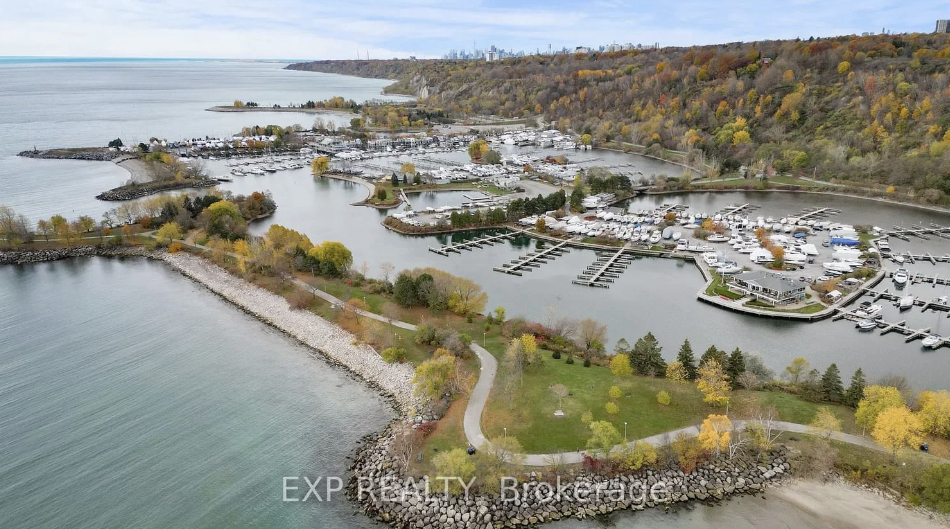
5. Financing
Probably the biggest challenge of having a houseboat is getting one. Not only are they quite rare to find for sale, but banks won’t give you a traditional mortgage to purchase one. It can also be hard to find an insurance company that will cover a houseboat.
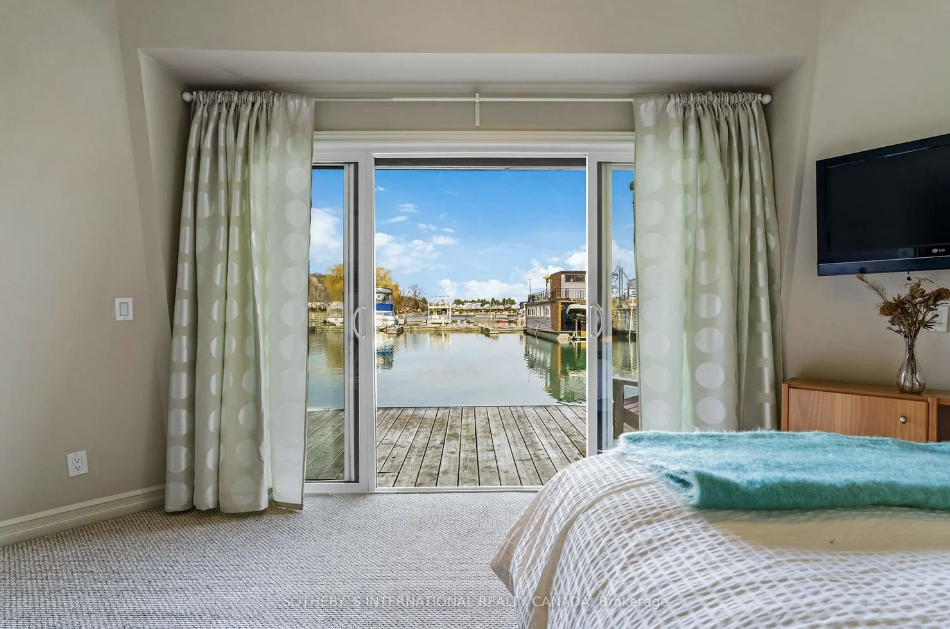
The Bottom Line
Living on a houseboat is a unique lifestyle that offers freedom, adventure, and a closer connection to nature. However, it also comes with its own set of challenges — from space limitations to maintenance demands. If you’re ready to embrace a simpler, more sustainable way of life and don’t mind rolling up your sleeves, living on a houseboat could be your perfect adventure.
Starting your search for a new home? Click on any of these links to access active listings, sold listings or contact a Strata agent.
For any questions about this article or media inquires, please email media@strata.ca

